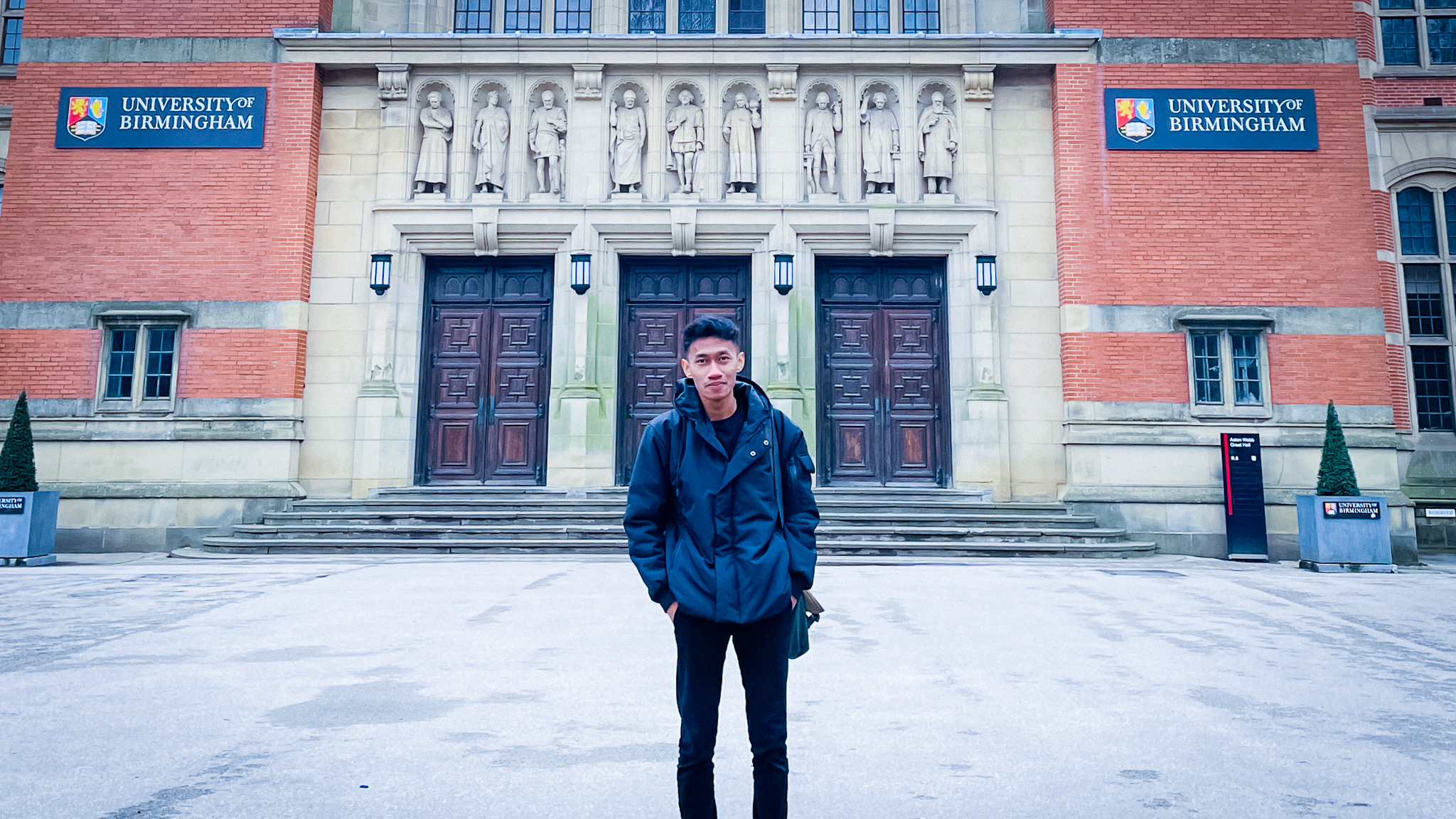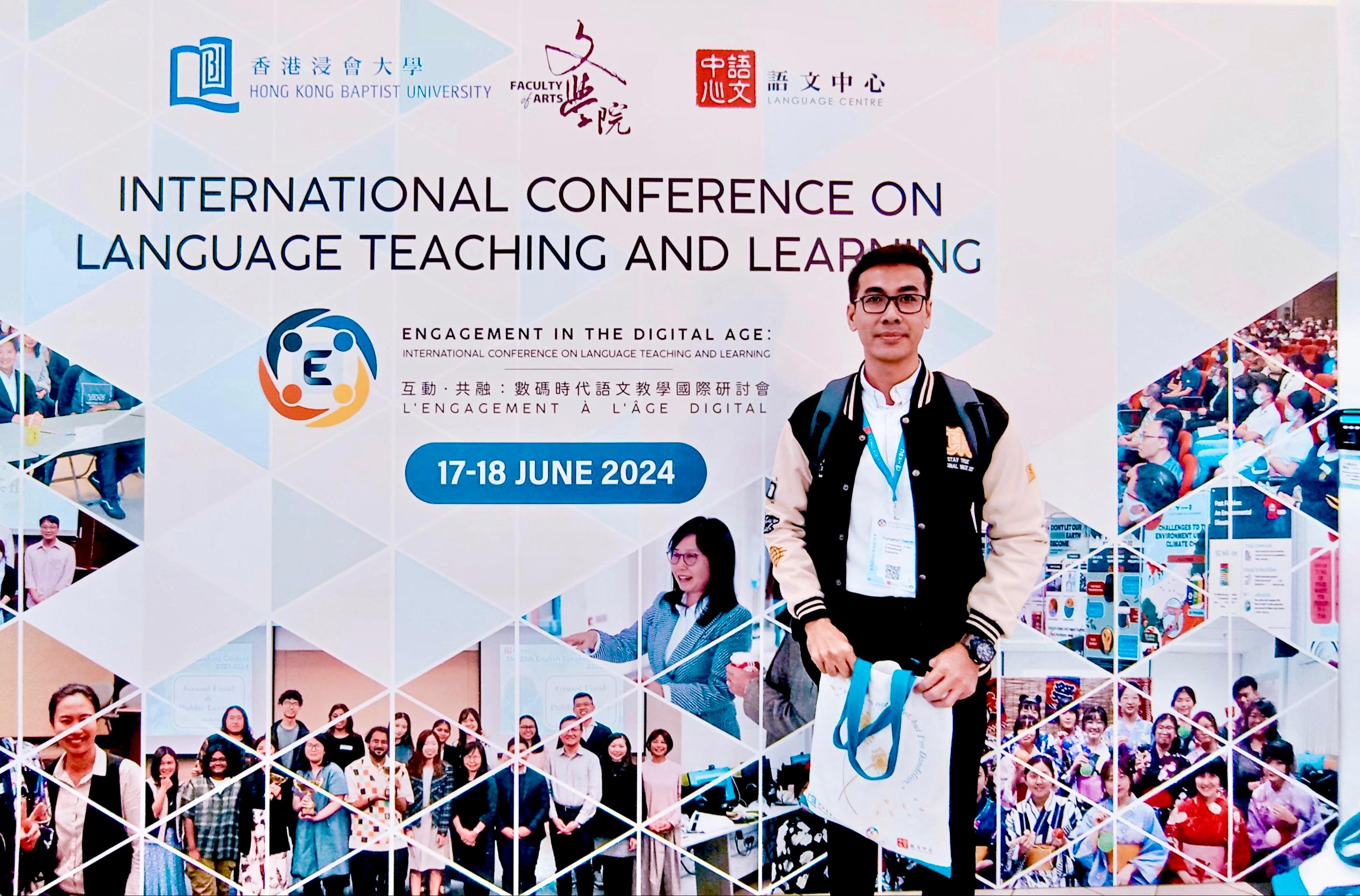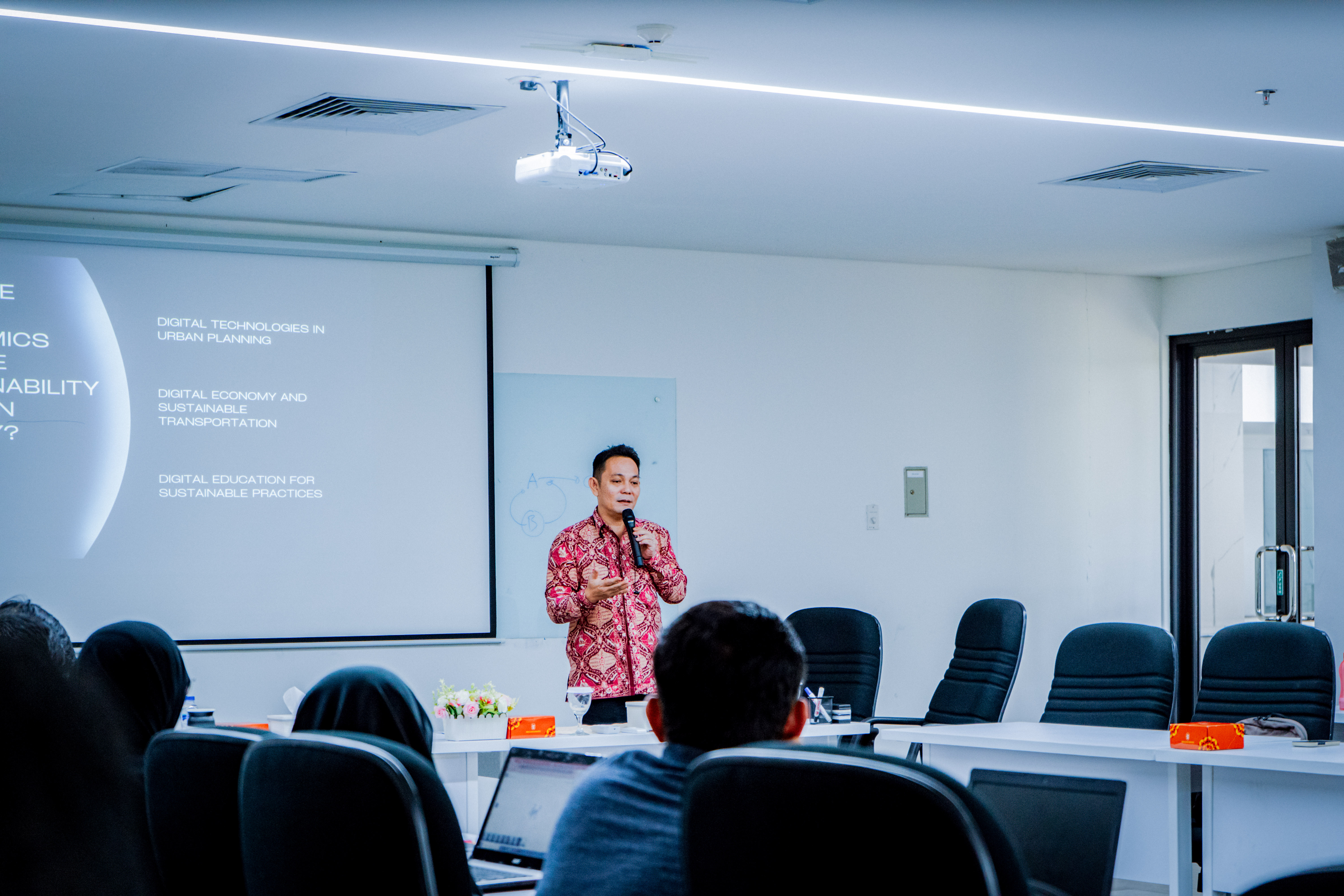UIII Student Discusses Digital Sufism at Yogyakarta Conference
March 25, 2024 Contributor: Hamad Shoukat | Editor: Supriyono
UIII, Yogyakarta - Usman Waheed, our student from MA in Islamic Studies program, presented his paper at the 7th Panel Conference of Journal Sosiologi Reflektif 2023 in Yogyakarta, Indonesia, where he addressed the issue of Digital Sufism in his home country, Pakistan.
His presentation was titled “Digital Sufism in Pakistan: Authenticity and Distortions in the Social Media Age” in which he explored the profound dimensions of Sufism in today’s era dominated by the globalization of social media.
Employing a qualitative methodology enriched by the profound wisdom encapsulated in the Quran and Hadith, Usman tried to bridge an intellectual chasm, delicately unraveling the intricate balance between authentic Sufi acts and the digital age.
The findings suggested that despite digital media engagement, the core tenets of Sufism remain. In the interplay between mysticism and societal engagement, Usman’s research unfurls the often-overlooked dynamic wherein Sufis, despite their renunciation of worldly pleasures, emerge not as mere observers but as dynamic participants in the unfolding tapestry of human affairs.
Akin to a scholarly alchemist, Usman deftly synthesizes a compelling comparison between Quranic and Hadith teachings and Sufi ideologies. This juxtaposition not only reveals the fluidity and spiritual emphasis inherent in Sufism but challenges the rigid boundaries of traditional Islamic thought.
Yet, beneath the surface, his standpoint uncovers the shadowy corners of the digital realm where self-proclaimed 'Sufi teachers' may perpetuate practices that stand in stark contrast to the genuine roots of Sufi tradition.
Acknowledging the potential pitfalls, Usman not only navigates but also celebrates online channels for the credible dissemination of information by established Sufi organizations. These, adorned with the sagacious contributions of renowned scholars, emerge not just as platforms but as bastions against the misappropriations that threaten to dilute the very essence of Sufism in the vast expanse of the digital age.
Usman’s presentation on digital Sufism at the Yogyakarta conference is a testament to UIII’s support for its students to contribute to the scholarly development to connect classical ideas like Sufism with contemporary issues of the digital age.
- UIII Extends Application Deadline for 2025 International Admissions
- What Does Eid al-Fitr Mean for the UIII Academic Community?
- UIII PhD Scholar Ararat Kostanian Delivers Lecture at Armenia's Yerevan State University
- Swedish Ambassador to Indonesia Applauds UIII’s Vision, Explores Future Collaboration
- Depok Mayor Supports UIII as the Green Lung of Depok and Beyond
- Depok Mayor Pledges to Build Performance Hall at UIII
- New Parking Facility Launched, Part of UIII-Sentra Medika Hospital Partnership
- Yogyakarta’s UII Won 1st FisFastFest’s Clash of Campuses
- Vice Minister of Religious Affairs Praises UIII as a Global Hub for Islamic Education
- Hurray!! UIII Wins Football Championship


